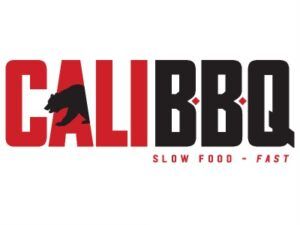What Makes A Commercial Kitchen?

Bakeries, food trucks, bars, restaurants, and everything in between have kitchens. But, what qualifies these kitchens as commercial-grade?
“To be classified as a commercial kitchen, the facilities must be licenced by foodservice authorities and inspected by various inspectors. However, kitchen owners should meet other equipment and layout standards before the kitchen can be classified as commercial grade,” connotes property and title search specialists from Property Registry.
However, there’s a lot more to commercial kitchens than those mentioned. So if you want to know what defines a commercial kitchen, take a look at the explanation of what is a commercial kitchen and the primary characteristics that make them commercial-grade.
What Is A Commercial Kitchen?
A commercial kitchen is used for cooking meals for guests in a home, bar, hotel, restaurant, or any other form of hospitality establishment. These kitchens are built for food that is sold rather than prepared and consumed by the person or group of people preparing it.
What Makes A Commercial Kitchen?
For a kitchen to be classified as commercial-grade is determined by the type of foods you offer, the scale of your business, permits, licenses, order volume and many other things. We’ll run through these specifications in the points below.
- Commercial Kitchen Inspections And License
Inspections and licences are required for commercial kitchens. As soon as you begin designing your new facility, you should consult with your local health agency to ensure that all necessary elements, such as proper washing and refrigeration systems, are in place. Cottage kitchen requirements must be met in many locations, making it easy to have your kitchen registered as a commercial kitchen.
- Health Code Regulations And Safety Requirements
Depending on their geographic region, all commercial kitchens are subject to health code laws and safety standards. Typical safety standards include:
- Sufficient ventilation systems.
- Ergonomic working spaces.
- Fire suppression systems.
- Adequate food storage.
- Access to sanitary facilities.
“Health code licences are required to produce and sell food to customers since these facilities are set up to make bulk items and retail. Everything falls under the occupational health and safety management rules, from dishwashing setting to paintwork quality to waste disposal processing,” says residential and commercial pest control specialist Harrison Hamblin of Habitat Inspections.
- Commercial Kitchen Equipment
Equipment sets the distinctions between a domestic and commercial kitchen. Commercial kitchen equipment is substantially more prominent in size and intended for different food preparation activities depending on the necessary meal preparation on the menu. The equipment selection is mainly determined by the chef’s, and consultant’s recommendations predicated on how they plan to implement their process. Unlike household kitchen equipment, commercial kitchen equipment comes with laws and regulations for usage in commercial settings.
- Ventilation
Another aspect of commercial kitchens that must comply with regulations is ventilation. Generally, all commercial kitchens should have range hoods for filtering cooking steams, scents, and heat.
In addition, since high-temperature dishwashers create so much vapour that must be circulated away from the facilities, a filtration system should be installed.
- Work Flow And Layout

Most of the time, health authorities are strict about the design and layout of commercial kitchens for food safety. Inspections include making sure a cleaning sink isn’t too near a food preparation sink.
Furthermore, commercially successful kitchens are usually set up so that work can flow easily. There should be adequate space between appliances for workers to walk around and function without colliding and sufficient counter space for efficient activities. While considering layout and workflow might make the commercial kitchen design and layout more complicated, these considerations can save time and effort in the long run.
Thinking About Upgrading Your Kitchen To Commercial Grade?
A lot of thought and preparation goes into designing a commercial kitchen facility. Whether you want to hire one or build one yourself, you must be aware of the numerous safety and efficiency standards. Check to see what government-specific criteria you’ll need to satisfy and what local inspections you’ll need to pass. To stay organised, plan ahead of time and carefully.
You’ll have a commercial kitchen offering wonderful meals to your neighborhood in no time.
Subscribe to the CCR Magazine for more information, latest news, and hottest trends about Conmmercial Construction and Renovation. Get top of the line news and commercial construction articles and resources in just clicks away.
Feel free to reach out to us with your construction-related concerns or inquiries.


























